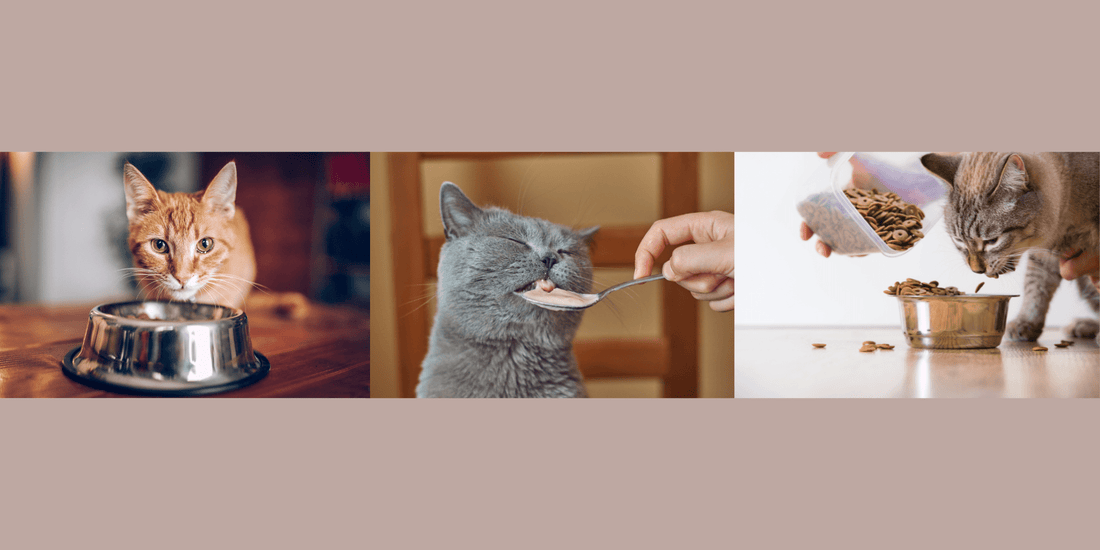What should a sterilized/castrated cat's diet be?
Neutered cats have different nutritional requirements than non-neutered cats. Understanding why these needs change and what kind of diet your neutered cat needs can help you keep your furry friend healthy and happy.

If you have recently had your cat spayed or neutered, you are probably wondering if you need to change their diet. The answer is a resounding YES! Spayed cats have different nutritional requirements compared to non-sterile cats.
Understanding why these needs change and what kind of nutrition your neutered cat needs can help you keep your furry friend healthy and happy.
Why do sterilized cats need a special diet?
1. Sterilization causes significant hormonal changes that affect metabolism. These changes slow down the metabolism, making the cat more prone to gaining weight. Sterilized cats often need fewer calories because they are no longer as active as before the procedure.
2. Increased appetite. Hormonal changes can make your cat feel hungrier than usual, which can lead to overeating. A special diet helps to manage this increased appetite by being lower in calories. This allows your cat to eat a normal, balanced meal that is lower in calories.
3. Due to their slower metabolism and increased appetite, neutered cats are at higher risk of becoming overweight or obese. Obesity can lead to a number of other health problems, including diabetes, arthritis and heart disease. Therefore, it is crucial to feed your neutered cat a diet that helps maintain a healthy weight.
4. Urinary tract health issues. Neutered cats, especially male cats, are more susceptible to urinary tract problems. Diets formulated for neutered cats often contain ingredients that promote urinary tract health by providing the proper balance of minerals, which helps prevent the formation of urinary crystals and stones.
What should their diet be like?
Quality food intended for sterilized or neutered cats has several key properties:
1. Lower calorie content. Since neutered cats are prone to gaining weight, their food should contain fewer calories. This doesn't mean feeding them less, but choosing a formula that has fewer calories per meal, allowing them to feel full without overeating.
2. High-quality protein. Protein is essential for maintaining muscle mass, which is important for overall health and metabolism. Look for cat foods that list meat or fish as the first ingredient . High-quality protein helps your cat stay strong and supports their bodily functions.
3. Controlled fat levels. While fat is an important part of a cat's diet, too much can lead to weight gain. It's crucial that the food contains healthy fats, such as chicken or salmon oil . These ensure healthy skin and coat without contributing to obesity .
4. Increased fiber content. Fiber helps your cat feel full and satisfied, which is especially important for neutered cats with increased appetites. It also aids in digestion and prevents hairballs, which are more common in neutered cats due to reduced activity.
5. Essential vitamins and minerals. Make sure your dog's diet includes vitamins and minerals that support overall health. Look for foods rich in antioxidants, vitamins E and C, and omega fatty acids , which contribute to a strong immune system, healthy skin, and a shiny coat.
6. Supports urinary tract health. Food for spayed and neutered cats usually has the right balance of minerals and pH levels that reduce the risk of urinary crystals and stones.
It's crucial to pay attention to the unique nutritional needs of neutered cats. Choosing the right diet can help your cat maintain a healthy weight, stay active, and enjoy a long, happy life. Remember to consult your veterinarian before making any major changes to your cat's diet to ensure that their specific needs are being met.
Your cat relies on you to make the best decisions for its health and well-being!
Resources

